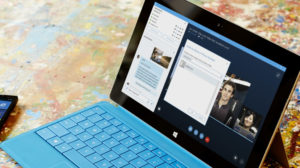Yes, There is Such a Thing as Over-Preparing for Interviews
14 April 2011

Most of the information you’ll read on the web about improving your interview skills tells you about how to prepare for an interview – but there is such a thing as over preparation. That can do you damage as well.
Over-preparation is an easy trap to fall into, particularly if you are keen on a job and want to give it your very best shot – or if you have under-prepared and been caught out in the past. However there are a few signs that your interviewer will pick up – if you’ve overcooked it on the over-prep a little.
If I am an interviewer, here’s how I know you’ve done too much work:
You talk at me, not with me. By this I mean you do not check to see I am listening by looking into my eyes or at my body language. The signs that I have disengaged will often be a quick flick of my eyes. If you’ve over prepared and determined to continue with what you want to say, you’ll miss that cue and continue on while I am quietly nodding off and trying not to show it.
You use words you wouldn’t normally use in everyday conversation.
You tend to paraphrase your actions with some with text-book descriptions of actions you should take. You sound like you have just read the text book on “perfect responses.”
Your answers do not quite hit the mark. The answers have some of the detail I have asked for in my question, but not all.
You sound scripted and nothing like the person who walked in with me and made casual conversation as we sat down. Your speech is too quick, or too mannered. You are in interview mode.
So how much preparation is too much preparation – and how can you slow yourself down?
Before the interview, by all means come up with examples that you’d like to present. Many questions have common themes and behaviours that you’ll be required to demonstrate. But instead of writing your answers out in full and learning your lines, just jot down some bullet points. Talk them out as you would in a conversation. That will stop you sounding scripted at least.
Remember your words are important, but text book sentences are not. We never speak in the same way that we write. And if we do, we sound a little odd. There really is no point learning your lines.
In interview focus on whether the other person understands you, not so much on the words that you are saying. This is a small but hugely significant thing to do. You can change your tone, example, pace and words that will help the other person get your message. If you focus on the other person, it helps make the interviewer think that they are the only person in the world that you want to talk with.
Remind yourself it’s OK to take your time answering a question.
In interview, I like to hear the sound of someone thinking. It means the interviewee is responding in a genuine way to me, and that their answer will be a better reflection of what they have done on a job, instead of something they have practiced.
For more interview tips, visit InterviewIQ.
Hourly updated employment opportunities in our Career section!
___________________________




